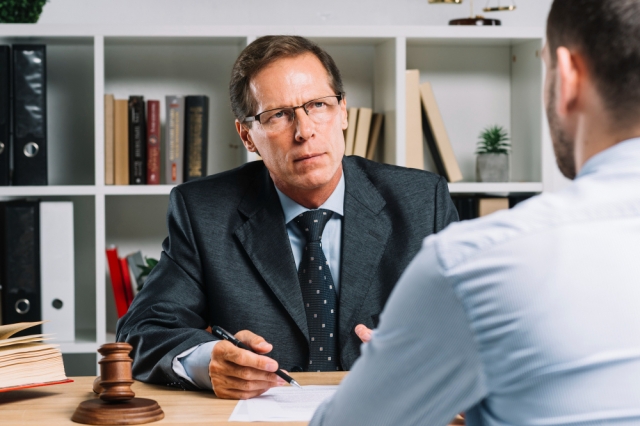As unethical and illegal as evidence hiding may be, it still happens. This is because the incentives for a corporation are often clear: minimizing liability. But when a bereaved family obtains legal representation from a determined lawyer, concealment strategies often fail and companies face consequences.
How Can a Lawyer Uncover Hidden Evidence?
When an experienced wrongful death lawyer takes on a case where evidence hiding is suspected, they have precise legal avenues and investigative skills to uncover concealed documents and information.
Common approaches lawyers utilize include the following.
Legal demands
Formally demanding internal documents, reports, communications, video footage and other evidence using official letters and legal requests. This may also involve directly confronting the company about concealing evidence.
Subpoenas
Getting court-ordered subpoenas to compel the release of records, documents, emails, surveillance footage and other evidence a company has failed to turn over voluntarily.
Motions to compel
Filing official court motions demanding a company complies with handing over evidence they are withholding related to the death. Getting judicial orders often ensures that they produce the evidence.
Inspections
Requesting or demanding on-site inspections of equipment, accident locations, vehicles or other physical sites related to the death. Direct examinations can reveal hidden details.
Expert analysis
Collaborating with specialists who can forensically analyze documents and evidence to spot manipulation, destruction or hiding. Their expertise can detect concealment signs.
Witness accounts
Interviewing third-party witnesses and whistleblowers who may have insight into document hiding occurring within the company. Eyewitness evidence further builds the case.
Official complaints
Filing grievances against the company with regulating agencies and authorities detailing evidence hiding.
Through leveraging these legal tools and conducting in-depth investigations, the lawyer tackles concealment efforts head-on. They gather irrefutable proof of both culpability in the death and unethical evidence hiding. Even documents destroyed can often be reconstructed to bolster the case.
Generally, the threat of escalating legal repercussions, sanctions, reputation damage and even criminal prosecution creates substantial leverage for the lawyer. The risk of such consequences frequently compels companies to abandon concealment attempts and engage more constructively - including handing over previously hidden evidence.
How Can a Lawyer Still Build a Strong Case with Lacking Evidence?
Even when documents are clearly missing or destroyed, an experienced attorney has the skills and tenacity to piece together compelling evidence from diverse sources. They can build a robust case proving culpability in the death and uncovering critical details about what occurred.
For example, if you hire a wrongful death lawyer in Houston, they can use the following approaches to overcome lacking evidence:
Witness testimony
Securing accounts of the death and company negligence from third-party eyewitnesses, records custodians, friends/family of the deceased or whistleblowers. First-hand perspectives provide insights and fill evidentiary gaps.
Expert analysis
Hiring specialists in areas like accident reconstruction, biomechanics, hazard recognition, economics damages and other disciplines to provide reports detailing liability based on available documents. Expertise strengthens arguments.
Public records
Compiling supplemental evidence from public data sources like regulatory violations, inspection reports, licenses and certifications and other documented instances of past negligence or errors. Patterns demonstrate culpability.
Circumstantial evidence
Analyzing peripheral information like communications records, surveillance video, equipment service logs and visitor entries for clues inferentially linking the company to the death. Together, circumstantial items make a persuasive case.
Negative inference
When documents are clearly missing or destroyed, asking courts to render formal negative inference rulings that presume the concealed/destroyed items were incriminatory towards the company. This negates the impact of hiding evidence.
Through these efforts blending law, investigation, research, analysis and documentation, the lawyer constructs a thorough account of liability and responsibility in the death despite limitations from hidden evidence. The company still faces accountability.
How Can Legal Action Against Evidence Hiding Bring Justice for Families?
The injustice of losing a loved one is profoundly deepened when corporations actively hide evidence and attempt to manipulate the quest for legal redress. While no documents or trial verdict can ever return the lost person, there are still meaningful forms of justice families can obtain:
Financial compensation
Despite concealed evidence, a lawyer still builds a strong enough case to potentially secure substantial damages, or fair out-of-court legal settlements, from the company in a settlement or court award. Financial compensation supports grieving families.
Public acknowledgment
Taking aggressive legal action often forces companies to publicly admit greater levels of culpability or settle earlier to avoid further reputation damage from resistance tactics becoming known. This creates a public record of responsibility.
Prevention of future harm
Landmark verdicts against companies serve to immediately improve safety and force corporate policy changes. Likewise, exposés of evidence hiding prompt procedural reforms regarding transparency and ethics.
Sanctioning misconduct
Evidence hiding often compels escalated court sanctions, fosters criminal probes into obstruction of justice, prompts executive resignations and leaves companies less able to evade responsibility in future cases. This disincentivizes hiding evidence tactics by other companies.
Emotional closure
When truth and details emerge, and when a company is forced to accept some degree of accountability because of the pressure of legal action, families gain a measure of emotional closure from the sense of justice. This helps the grieving process.
While the lawyer focuses on building the best legal case possible despite obstructionist tactics, these broader outcomes underscore that fighting against callous evidence hiding does translate to meaningful justice for families suffering from tragic loss.
Why Lawyers Are Families’ Greatest Asset Against Corporate Evidence Hiding
Corporations often have more expansive resources than grieving families reeling in the wake of losing a loved one. As companies maneuver to conceal their culpability, it risks denying families justice and leaving painful questions forever unresolved.
However, hiring a lawyer ensures that there’s a force multiplier, leveling the field through legal expertise and the proficiency to confront cover-ups. This is because they usually work tirelessly so families obtain answers and accountability. Some of the reasons why lawyers are stalwart allies to have include:
In-depth investigative skills
They have the know-how to comprehensively investigate negligence and detect intentional document destruction. Often, they leave no stone unturned when it comes to discovering supporting evidence from myriad alternate sources.
Understanding of legal intricacies
Lawyers grasp nuanced compliance laws companies violate through evidence hiding, destruction and obstruction. They are masters at utilizing the court system and regulatory bodies to incentivize transparency.
Willingness to relentlessly battle concealment
They will use every lawful tool and strategy to challenge opacity. They can file lawsuit after lawsuit if needed, fully prepared to litigate for years against unyielding defendants. In essence, they can stay the course without losing spirit or momentum.
Alignment with families’ interests
Attorneys are retained specifically to fight for transparency, accountability and justice for grieving families against entities hiding behind bureaucracy and opaque procedures. To them, case success is judged by justice delivered for families.
Counsel during emotional turmoil
In most cases, attorneys help devastated relatives cope with traumatic loss compounded by evidence concealment. They advise families through confusing systems and intimidating legal opponent tactics. In essence, the empathetic counsel eases feelings of helplessness.
During an already overwhelmingly painful period after losing a loved one, companies piling dishonesty and obfuscation on grieving families represents kicking them while they are down. But committed lawyers help lift families back up as tireless advocates demanding answers and justice. With an attorney leading the legal fight, violated trust and traumatic loss give way to truth and accountability on the family’s terms.
Final Thoughts on Exposing the Truth When Companies Hide Evidence
Losing a loved one leaves an unfathomable hole in the lives of family members who are forever changed by the tragedy of death. However, discovering that dishonest company leaders are actively working to bury evidence and dodge accountability through deception inflicts even more traumatic pain.
However, the situation is far from hopeless for bereaved families. With an unwavering lawyer leading the legal fight, the full truth can ultimately come to light even when companies most desperately work to conceal it. Methodical legal skills and profound dedication to serving clients’ needs equip attorneys to reveal what happened, validate relatives’ loss through accountability mechanisms and secure meaningful measures of justice.
While companies hiding evidence tend to assume that their power, influence and underhanded tactics will protect them from consequences, this assumption often translates to them underestimating the formidable combination of legal expertise and a lawyer’s commitment to ethics and transparency.






